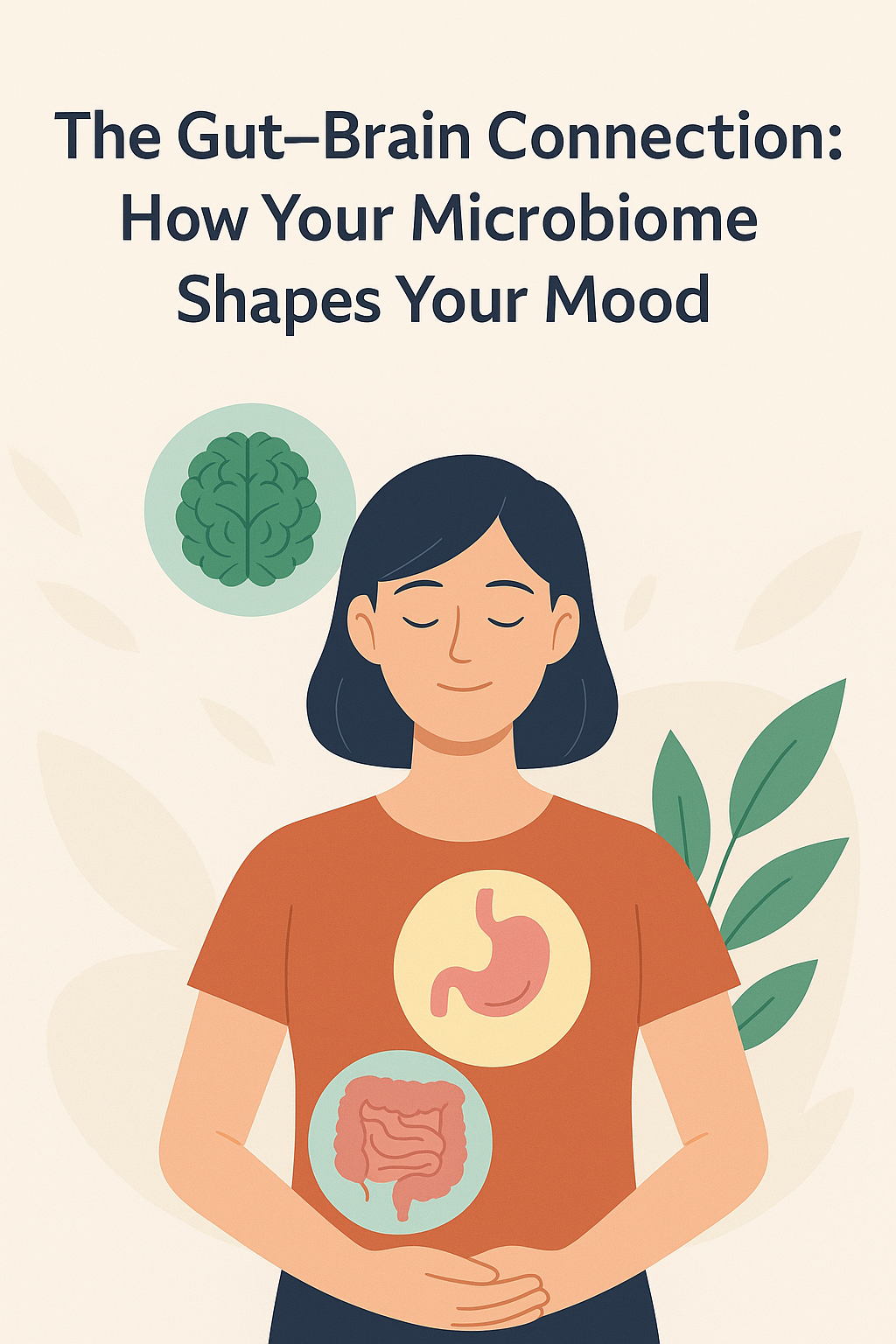As Mental Health Awareness Week continues (12–18 May), we’re shining a light on a powerful yet often overlooked connection—your gut and your brain.
You may have heard of the gut–brain axis, the two-way communication system between your digestive tract and your central nervous system. But did you know that your gut microbiome—home to trillions of bacteria—can profoundly affect your mood, cognition and emotional balance?
Let’s explore how nurturing your gut can enhance your mental wellbeing and how your food choices can make all the difference.
How Gut Health Impacts Mental Health
Your gut and brain are in constant conversation, connected by the vagus nerve, neurotransmitters, and immune system signals. Here’s how your microbiome can shape how you feel:
Mood regulation: Gut bacteria produce neurotransmitters like serotonin and dopamine. In fact, about 90% of serotonin is made in the gut.
Stress response: An imbalanced microbiome can elevate cortisol (the stress hormone), making it harder to manage anxiety and overwhelm.
Inflammation: Dysbiosis (an unhealthy gut) can lead to low-grade inflammation, which has been linked to depression and cognitive decline.
5 Steps to Support the Gut–Brain Connection
Adopting a gut-friendly diet rooted in Blue Zone principles—whole foods, anti-inflammatory ingredients, and minimal processed sugar—can do wonders for your mental health.
Here’s where to begin:
Eat more fermented foods
Add kefir, sauerkraut, kimchi, and miso to your meals. These are rich in probiotics that feed your microbiome.
Feed your gut with fibre
Soluble fibre from oats, chia seeds, lentils and vegetables helps beneficial bacteria thrive.
Ditch the sugar and ultra-processed foods
Sugar feeds the wrong kind of gut bacteria and contributes to inflammation. Choose natural, unprocessed ingredients wherever possible.
Stay hydrated
Your gut needs water to maintain motility and support detoxification.
Choose organic and alkaline where possible
A diet high in pesticides, preservatives and animal fat can be disruptive. Prioritise organic, plant-based meals to protect your microbiome and nervous system.
Inspired by Blue Zones
In longevity hotspots like Ikaria (Greece) and Loma Linda (California), people eat close to the earth, with high plant diversity and little to no processed food. Their gut health is one of many factors contributing to lower rates of depression and higher life satisfaction.
You can bring these same principles into your kitchen—starting today.
Take Control of Your Mood, Naturally
If you’re struggling with low mood, anxiety or digestive discomfort, you’re not alone. Understanding the link between food and mental health is the first step. The second is personalising your diet to meet your unique needs.
I offer functional testing and personalised nutritional therapy to help you get to the root of your symptoms and support your long-term wellbeing.
Book your free 15-minute call to find out how I can help.
Written by Milvia Pili (FNTP)
Registered Nutritional Therapist
Founder, Blue Zone Nutrition
www.bluezonenutrition.co.uk




